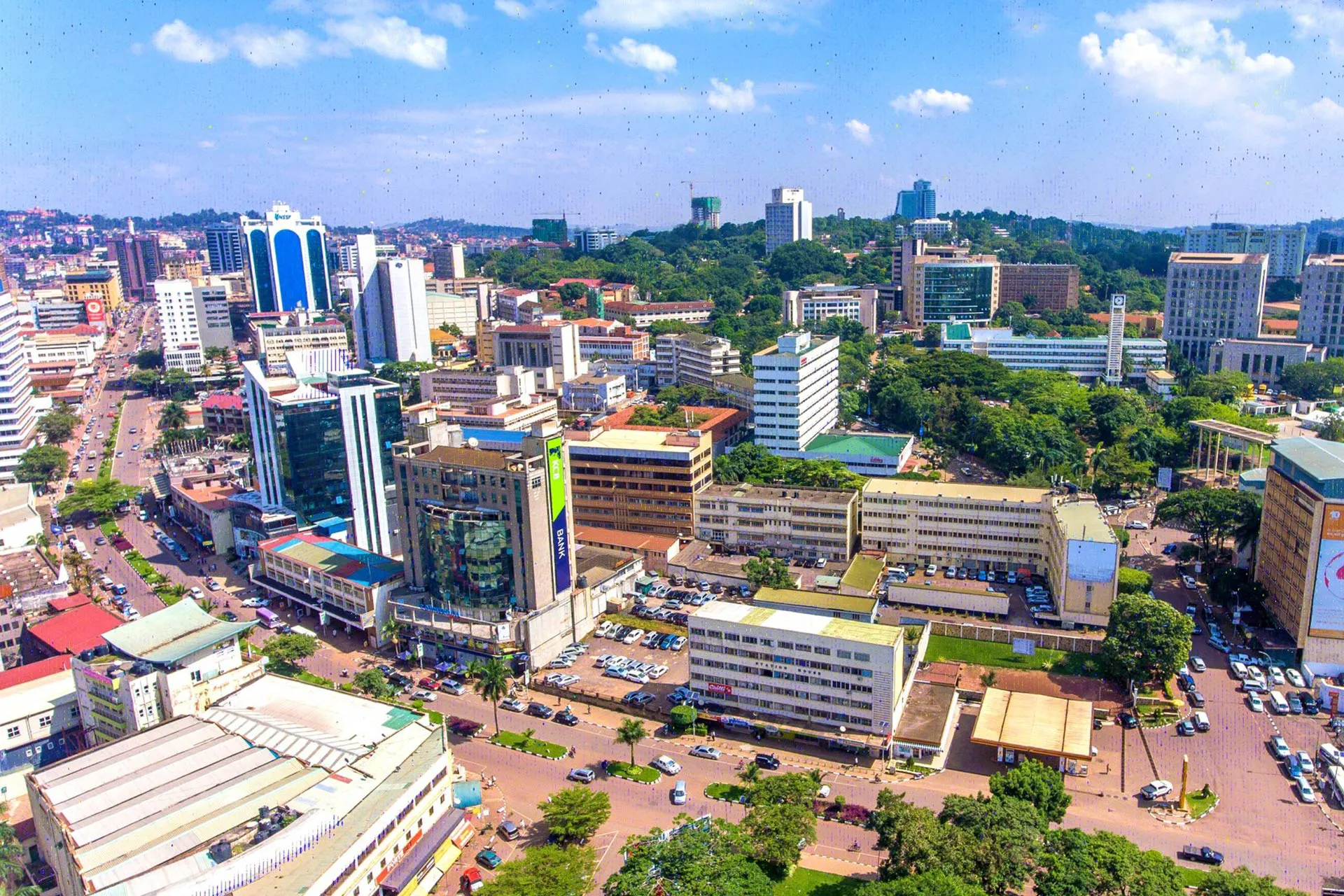
(Uganda Government, 23.Jan.2024) — Final negotiations for the financing and construction of Uganda’s $4bn domestic refinery began this month after Alpha MBM Investments from the United Arab Emirates was chosen by the government of Uganda as preferred bidder.
The breakthrough was announced by Ruth Nankabirwa, Uganda’s Minister of Energy and Mineral Development, at the first of a series of press conferences due to run quarterly giving up-to-date overview of the country’s transformative oil and gas project.
After private sector partners had been considered for the refinery she said that on 30 Jun. 2023 Ugandan President Yoweri Museveni directed public sector ownership be considered for the refinery.
- Final negotiations for the financing and construction of Uganda’s $4bn domestic refinery began this month after Alpha MBM Investments from the United Arab Emirates was chosen by the government of Uganda as preferred bidder
- Breakthrough announced by Ruth Nankabirwa, Uganda’s Minister of Energy and Mineral Development, at the first of a series of press conferences due to run quarterly giving up-to-date overview of the country’s transformative oil and gas project
- Min Nankabirwa also announced infrastructure at the Kingfisher development area, one of the two major production areas already licensed, is well ahead of schedule having reached 21 per cent progress last month rather than the 17 per cent planned
- Other progress milestones include 95 per cent construction of Kabalega Airport, a logistics hub for the oil and gas project, and which on completion will become the country’s second international airport after Entebbe near Kampala, Uganda’s capital
- Several investment groups had expressed interest in the refinery project but Alpha MBM, which began preliminary talks with the Ugandan government last Sep., was successful
- Final talks, due to last no more than three months, began between the two sides on January 16 in Kampala for what will be East Africa’s first major refinery, ending the region’s reliance on refined products imported expensively from overseas
- And the construction of the refinery at Hoima, which will process 60,000 barrels of oil daily, in the west of the country will transform Uganda’s energy security profile as it will no longer rely on neighbouring countries for transshipment of critical fuel supplies
- As well as driving down costs of petrol, diesel and other fuels, the refinery will also drive a key part of Uganda’s Energy Transition Plan, as it will produce the Liquefied Petroleum Gas that is a key component of the country’s `clean cooking’ initiative
- While Uganda is already a world leader in sourcing electricity from renewables (hydro, solar and geothermal) the burning of biomass such as charcoal and timber for domestic cooking has a high environmental impact
- This environmental damage is dramatically reduced if LPG cookers are used, as well as saving up to 50,000 lives lost through smoke-related respiratory illnesses
“The Ministry of Energy and Mineral Development engaged stakeholders to develop a strategy for the refinery project and received Expressions of Interest (EOIs) from several potential investors and evaluated,” she said.
After thorough consultations and evaluations by the government, a Memorandum of Understanding (MoU) was signed on 22 Dec. 2023 between the Government of Uganda and Alpha MBM Investments LLC from the United Arab Emirates, outlining cooperation and negotiation terms for the Refinery Project.
“I am happy to report negotiations of the key commercial agreements between the Government and Alpha MBM Investments LLC commenced on 16th January 2024 and are expected to be concluded within three months.’”
Alpha MBM is a UAE-based investment house led by His Highness Sheikh Mohammed bin Maktoum bin Juma Al Maktoum, a member of the Dubai Royal Family.
Alpha MBM is a pioneering investment company and describes Uganda as “an untapped market with the power to create opportunities where none were perceived.”
Before giving her overview of the hydrocarbon sector in Uganda Min Nankabirwa reaffirmed her country’s commitment to “developing the country’s oil and gas resources responsibly, openly, and profitably’’.
“Since the landmark discovery of oil in 2006, Uganda has upheld the highest environmental, industrial, legislative, and regulatory standards,’’ she said.
“The sector developments are projected to contribute USD 8.6 billion to the country’s GDP and have created over 12,000 jobs. This is the beginning of a long-term economic upliftment, promising benefits for the next 25+ years.”
The Minister, who attended the Cop28 Climate Conference in Dubai last month, said she was pleased the meeting reaffirmed the global long-term need for oil and gas, which means Uganda’s earnings, due to begin when first oil is produced in 2025, are secure.
“The COP28 discussions emphasized a ‘last in, last out’ approach to reducing hydrocarbon production,” she told the press conference.
“Having benefited for decades, established oil-producing nations are better positioned to reduce their output first. As a late entrant, Uganda and other developing nations are entitled to develop their resources and attain the same advantages enjoyed by longer-established oil producers.”
In her overview she laid out progress in Uganda’s four existing major oil and gas projects: two Upstream projects, production fields in the west of Uganda, the larger one known as Tilenga and a smaller one Kingfisher, and two Midstream projects, the Hoima refinery and the East African Crude Oil Pipeline for shipping crude to the Indian Ocean coastline for export.
“Transitioning from strategic planning to practical implementation, we are advancing four major oil and gas projects: the Tilenga and Kingfisher projects in the Upstream ($6bn-$8bn) and the East African Crude Oil Pipeline (EACOP) $5bn), and the Uganda Refinery ($4bn) Projects in the Midstream.”
“These projects, combined with the Government’s investment in supportive infrastructure, signify an investment of approximately $20bn in Uganda’s economy.”
With Tilenga and Kingfisher expected to produce respectively 190,000 and 40,000 barrels of crude oil daily at peak production, Min Nankabirwa also said other exploration licences in the western basin where the two existing projects are based, as well as other basins in the centre and east of the country could lead to higher daily production levels as the country matures as an oil producer.
Min Nankabirwa said infrastructure at the Kingfisher development area, one of the two major production areas already licensed, is well ahead of schedule having reached 21 per cent progress last month rather than the 17 per cent planned
Other progress milestones include 95 per cent construction of Kabalega Airport, a logistics hub for the oil and gas project, and which on completion will become the country’s second international airport after Entebbe near Kampala, Uganda’s capital.
She was also able to give the latest figures for compensation arrangements for any Ugandans impacted by construction associated with the oil and gas developments. For all the projects more than 90 per cent of those effected by the work have accepted either relocation financing, or new land and houses. The remaining cases are either still being negotiated or subject to yet to be made court settlements.
Progress in the refinery project is among the most significant developments announced by the minister.
Four investment groups had expressed interest in the refinery project but Alpha MBM, which began preliminary talks with the Ugandan government last Sep., was successful.
Final talks began between the two sides on 16 Jan. in Kampala for what will be East Africa’s first major refinery, ending the region’s reliance on refined products imported expensively from overseas.
And the construction of the refinery at Hoima in the west of the country will transform Uganda’s energy security profile as it will no longer rely on neighbouring countries for transshipment of critical fuel supplies.
As well as driving down costs of petrol, diesel and other fuels, the refinery will also drive a key part of Uganda’s Energy Transition Plan, as it will produce the Liquefied Petroleum Gas that is a key component of the country’s `clean cooking’ initiative.
While Uganda is already a world leader in sourcing electricity from renewables (hydro, solar and geothermal) the burning of biomass such as charcoal and timber for domestic cooking has a high environmental impact.
This environmental damage is dramatically reduced if LPG cookers are used, as well as saving up to 50,000 lives lost through smoke-related respiratory illnesses.
____________________

